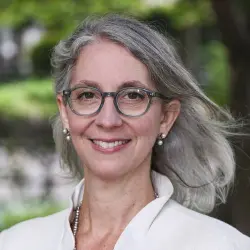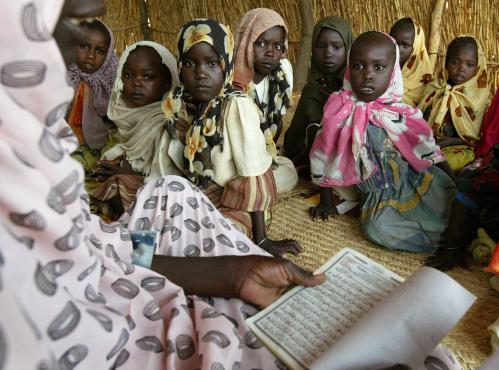The impact of the COVID-19 pandemic will be felt for years to come. With 1.5 billion students affected and at least 463 million unable to access remote learning, there is little wonder that education inequality is rising and young people around the world are significantly behind academically than where predicted without disrupted schooling. Children’s mental and physical health is also suffering because of course schools provide much more than academics: They are places to connect with peers and other adults in the community and for many to receive much needed nutritional support. The good news is that the challenges around education—and especially what to do about them—is on the global agenda, at least for the next several months. The U.N. secretary general has called for 2022 to be the year that the U.N. General Assembly turns its attention to transforming education systems in the wake of the pandemic with the Transforming Education Summit (TES) this September, and the global education community can come together to capitalize on this political moment.
However, to keep education on the global agenda after TES, the global education community will need to coalesce around a shared narrative on the importance of education and more importantly how education actors will work synergistically in education jurisdictions around the world to address the challenges at hand. There are many important priorities competing for attention from heads of state and ministers of finance—from the climate crisis to the rise of violence and conflict to increasing economic inequality to the spread of fake news through increasingly sophisticated technology. Education systems that are broadly inclusive and relevant—that help develop academic, critical thinking, and problem-solving skills—are essential for addressing many of the world’s crises through, climate change and digital literacy education to preparing those left out of the current pace of economic progress for the world of work, among other things. Ensuring that this message is heard consistently by leaders in countries around the world is an essential part of converting the energy leading up to the TES into sustained change after it.
To help catalyze a discussion among the actors in the global education ecosystem to do just this—come together to make the most of this political moment for transformation—we at the Center for Universal Education have mapped the range of agendas and debates put forward by actors at the TES pre-meeting in Paris and beyond. Having different actors working on different agendas is a sign of the richness of the education sector and not in and of itself a problem. The problem comes when education actors compete for attention and resources in countries and jurisdictions around the world and run the risk of diluting a clear sense of urgency to senior leaders and fragmenting the energy and momentum needed to embark on serious education transformation. Sustained education system change requires deep partnership across many levels, including across actors working on complementary agendas.
In mapping, we found a distinction between those working on post-pandemic recovery as the most urgent priority and those working toward broader transformation agendas. While both are obviously needed, pitting one vision against the other is ultimately unhelpful. Luckily, there is precedent within the global education community of coming together to develop a shared narrative that accommodates distinct visions. This is where I begin this brief. The first section covers the process, over a decade ago, of the global education community developing a shared narrative of “access plus learning” to weave together those worried most about the unfinished business of increasing access to education and those most concerned with tackling the poor learning outcomes of those already in school. The second section moves to a discussion of several of the agendas that have been prominently discussed around the TES process. While there are many agendas of importance and we could not cover them all in this brief, I focused on those with reoccurring debates and around them. Finally, in the hopes of helping weave together the recovery versus transformation debates, the final section proposes three main takeaways for the actors in the global education ecosystem to reflect upon and consider for further discussion.
Ultimately, coming together across diverse sets of education actors on shared priorities will be important to ensure that this moment is not wasted and instead is leveraged for the true work of education system transformation to be supported in the years to come.
The Brookings Institution is committed to quality, independence, and impact.
We are supported by a diverse array of funders. In line with our values and policies, each Brookings publication represents the sole views of its author(s).





